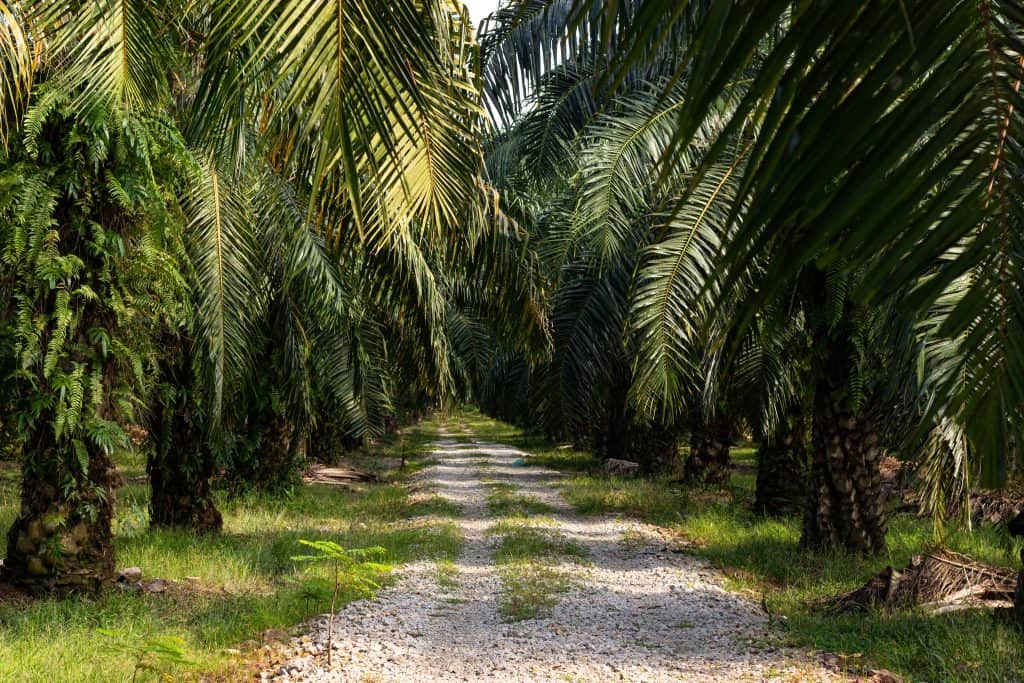Plantations are a business sector that attracts foreign investors to invest in Indonesia. Plantations are among the largest foreign exchange earners of state revenues in the Agricultural Sector. The Minister of Investment/Investment Coordinating Board (BKPM) noted that the majority of foreign investment in the agricultural sector is still in the form of oil palm plantations.
Table of Contents
The realization of Foreign Direct Investment (FDI) in agriculture, dominated by palm oil, during 2015 – March 2021 reached US$ 9.5 billion or 5.2% of the country’s total FDI. Investment flows are mostly in the food, plantation, and livestock sub-sectors. The largest number in Indonesia came from Malaysia (15.8%) and Singapore (53.7%).

Implementation Difficulties and Competitive Advantages of Plantations Activities in Indonesia
Plantations include all activities, ranging from planting certain plants on the soil and/or other growing media in the appropriate ecosystem, processing, and marketing of the products of these plants, with the aim of realizing welfare for businessmen and the community. The types of plantation commodities that are Indonesia’s flagship are coconut, cinnamon, cloves, and vanilla.
Palm Oil Plantation Regulation: the Competitive Advantages
The competitive advantages of plantation investment in Indonesia include:
1. A form of investment in real assets as a form of capital protection;
2. Relatively stable and positively correlated with inflation; and
3. Farmland/plantation investments provide lower income volatility and high total returns.
Palm Oil Plantation Regulation: the Implementation Difficulties
Despite having a competitive advantage in plantation investment in Indonesia, foreign investors often find it difficult to face various problems in implementation, one of which is the regulatory side. This can be seen from the Compound Annual Growth Rate (CAGR) of CPO production which is much higher than the CAGR for the development of oil palm plantation areas in Indonesia.
There are at least 3 types of plantation business licenses regulated as per regulations in Indonesia, including:
1) IUP-B
The Plantation Business Permit for Cultivation, hereinafter referred to as IUP-B, is a written permit from an authorized official and must be owned by a plantation company that carries out plantation cultivation business.
2) IUP-P
Plantation Business Permit for Processing hereinafter referred to as IUP-P, is a written permit from an authorized official and must be owned by a plantation company that carries out industrial business processing of plantation products.
3) IUP
The Plantation Business Permit, hereinafter referred to as IUP, is a written permit from an authorized official and must be owned by a plantation company that carries out plantation cultivation business and is integrated with the plantation product processing industry.
Commitments and Requirements for Managing a Plantation Business License
Before managing a plantation business license, businessmen are required to fulfill commitments and requirements. The fulfillment of this commitment must be submitted through the OSS no later than 2 months from the time the plantation business license is initially issued. Then the Ministry of Agriculture, Directorate General of Plantations and provincial or regency/city governments will evaluate no later than 1 month from the time the applicant submits fulfillment of the commitment.
When managing a plantation business license, there are obligations attached to the business license. One of them is by empowering the surrounding community or can be done by facilitating the construction of gardens from the surrounding community. Usually, this is for applying of business license in the form of IUP-P and IUP-B having an area of oil palm plantations of around 250 hectares.
The results of the evaluation of the fulfillment of commitments and requirements for business licenses will be notified to the OSS system. The plantation business license is only effective after the businessman is declared to have fulfilled the commitment based on the results of the evaluation. If plantation businessmen do not fulfill their commitments, the plantation business license will not be effective.
The Attractiveness of Oil Palm Plantation for Foreign Investors
One of the most attractive plantation commodities for foreign investors is oil palm. Oil Palm Plantation is any activity of managing natural resources, human resources, means of production, tools and machines, cultivation, harvesting, processing, and marketing of oil palm. Oil produced from palm oil is one of the basic needs that has a high price on the global market.
Oil Palm Plantation business is consisting of:
1. A form of investment in real assets as a form of capital protection;
2. Relatively stable and positively correlated with inflation; and
3. Farmland/plantation investments provide lower income volatility and high total returns.
Certification Requirements for Oil Palm Plantation Business
This type of plantation business has additional certification for business implementation. Oil Palm Plantation businesses are required to have the Indonesian Sustainable Palm Oil Plantation (ISPO) certification, which is a series of conformity assessment activities for Oil Palm Plantation businesses. This relates to providing written guarantees that the products and/or governance of Oil Palm Plantations have met the principles and criteria of ISPO.
Plantation companies are required to apply for ISPO Certification by attaching requirements in the form of:
1. Plantation business license;
2. Proof of ownership of land rights;
3. Environmental permits;
4. Determination of the plantation class of the plantation business license; and
5. Must have an internal auditor who understands the principles and criteria of ISPO obtained through ISPO training.
If you require assistance navigating the intricacies of Palm Oil Plantation Regulation in Indonesia or exploring investment opportunities in this sector, our team at SW Indonesia is here to help. With our deep expertise and local knowledge, we can guide you through the regulatory landscape and provide valuable insights for your business ventures. Contact us today at +62 2993 2132 to unlock the potential of the palm oil industry in Indonesia and embark on a successful and sustainable journey in this thriving sector.
